第27章 CHAPTER VII "To-morrow we Disappear into the Unkno
In moisture, however, it is otherwise; from December to May is the period of the rains, and during this time the river slowly rises until it attains a height of nearly forty feet above its low-water mark. It floods the banks, extends in great lagoons over a monstrous waste of country, and forms a huge district, called locally the Gapo, which is for the most part too marshy for foot-travel and too shallow for boating. About June the waters begin to fall, and are at their lowest at October or November. Thus our expedition was at the time of the dry season, when the great river and its tributaries were more or less in a normal condition.
The current of the river is a slight one, the drop being not greater than eight inches in a mile. No stream could be more convenient for navigation, since the prevailing wind is south-east, and sailing boats may make a continuous progress to the Peruvian frontier, dropping down again with the current.
In our own case the excellent engines of the Esmeralda could disregard the sluggish flow of the stream, and we made as rapid progress as if we were navigating a stagnant lake. For three days we steamed north-westwards up a stream which even here, a thousand miles from its mouth, was still so enormous that from its center the two banks were mere shadows upon the distant skyline.
On the fourth day after leaving Manaos we turned into a tributary which at its mouth was little smaller than the main stream.
It narrowed rapidly, however, and after two more days' steaming we reached an Indian village, where the Professor insisted that we should land, and that the Esmeralda should be sent back to Manaos.
We should soon come upon rapids, he explained, which would make its further use impossible. He added privately that we were now approaching the door of the unknown country, and that the fewer whom we took into our confidence the better it would be. To this end also he made each of us give our word of honor that we would publish or say nothing which would give any exact clue as to the whereabouts of our travels, while the servants were all solemnly sworn to the same effect. It is for this reason that I am compelled to be vague in my narrative, and I would warn my readers that in any map or diagram which I may give the relation of places to each other may be correct, but the points of the compass are carefully confused, so that in no way can it be taken as an actual guide to the country. Professor Challenger's reasons for secrecy may be valid or not, but we had no choice but to adopt them, for he was prepared to abandon the whole expedition rather than modify the conditions upon which he would guide us.
It was August 2nd when we snapped our last link with the outer world by bidding farewell to the Esmeralda. Since then four days have passed, during which we have engaged two large canoes from the Indians, made of so light a material (skins over a bamboo framework) that we should be able to carry them round any obstacle.
These we have loaded with all our effects, and have engaged two additional Indians to help us in the navigation. I understand that they are the very two--Ataca and Ipetu by name--who accompanied Professor Challenger upon his previous journey.
They appeared to be terrified at the prospect of repeating it, but the chief has patriarchal powers in these countries, and if the bargain is good in his eyes the clansman has little choice in the matter.
So to-morrow we disappear into the unknown. This account I am transmitting down the river by canoe, and it may be our last word to those who are interested in our fate. I have, according to our arrangement, addressed it to you, my dear Mr. McArdle, and Ileave it to your discretion to delete, alter, or do what you like with it. From the assurance of Professor Challenger's manner--and in spite of the continued scepticism of Professor Summerlee--Ihave no doubt that our leader will make good his statement, and that we are really on the eve of some most remarkable experiences.